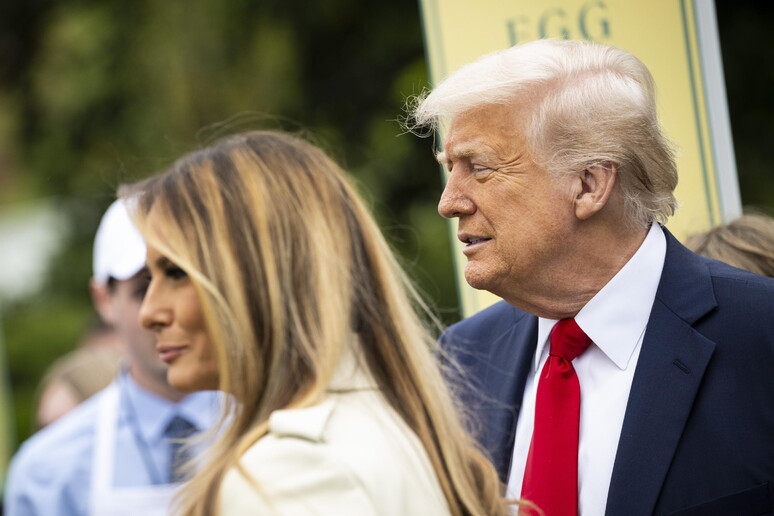On Monday, President Trump signed the Take It Down Act, a law that criminalizes the online dissemination of sexually explicit and non-consensual images, including those generated with AI. First lady Melania Trump took an active role in getting the law passed by Congress. For this reason the president insisted that his spouse also sign the document in question.
In March, Melania Trump used her first public appearance since she resumed her role as first lady to travel to Capitol Hill and lobby House members to pass the bill after it was okayed by the Senate.
During the signing ceremony, she called the new law a “national victory” that will help protect especially children from online exploitation, including through the use of artificial intelligence.
“AI and social media are the digital candy for the next generation, sweet, addictive and engineered to have an impact on the cognitive development of our children,” she said. “But unlike sugar, these new technologies can be weaponized, shape beliefs and, sadly, affect emotions and even be deadly.”
“Countless women have been harassed with deepfakes and other explicit images distributed against their will” the president explained added, “Today, we’re making it totally illegal.”
The bill makes it a federal crime to “knowingly post” or threaten to post intimate images without a person’s consent, including deepfakes. Websites and social media platforms will be required to remove such material within 48 hours of the victim’s request. Platforms will also have to take measures to remove duplicate content.
The bill, sponsored by Senator Ted Cruz and Congresswoman Maria Elvira Salazar, both Republicans, won broad bipartisan support in Congress, passing the House in April with 409 votes for and 2 against and getting the Senate’s unanimous green light.
After the House passed the initiative, Melania Trump said the bipartisan vote was a “powerful statement that we stand united in protecting the dignity, privacy and safety of our children”.
However, the measure has also been the subject of several criticisms. Free speech advocates and digital rights groups say the rule could lead to censorship of legitimate images, including legal pornography and LGBTQ content. Others argue that it could even allow the government to monitor private communications.












